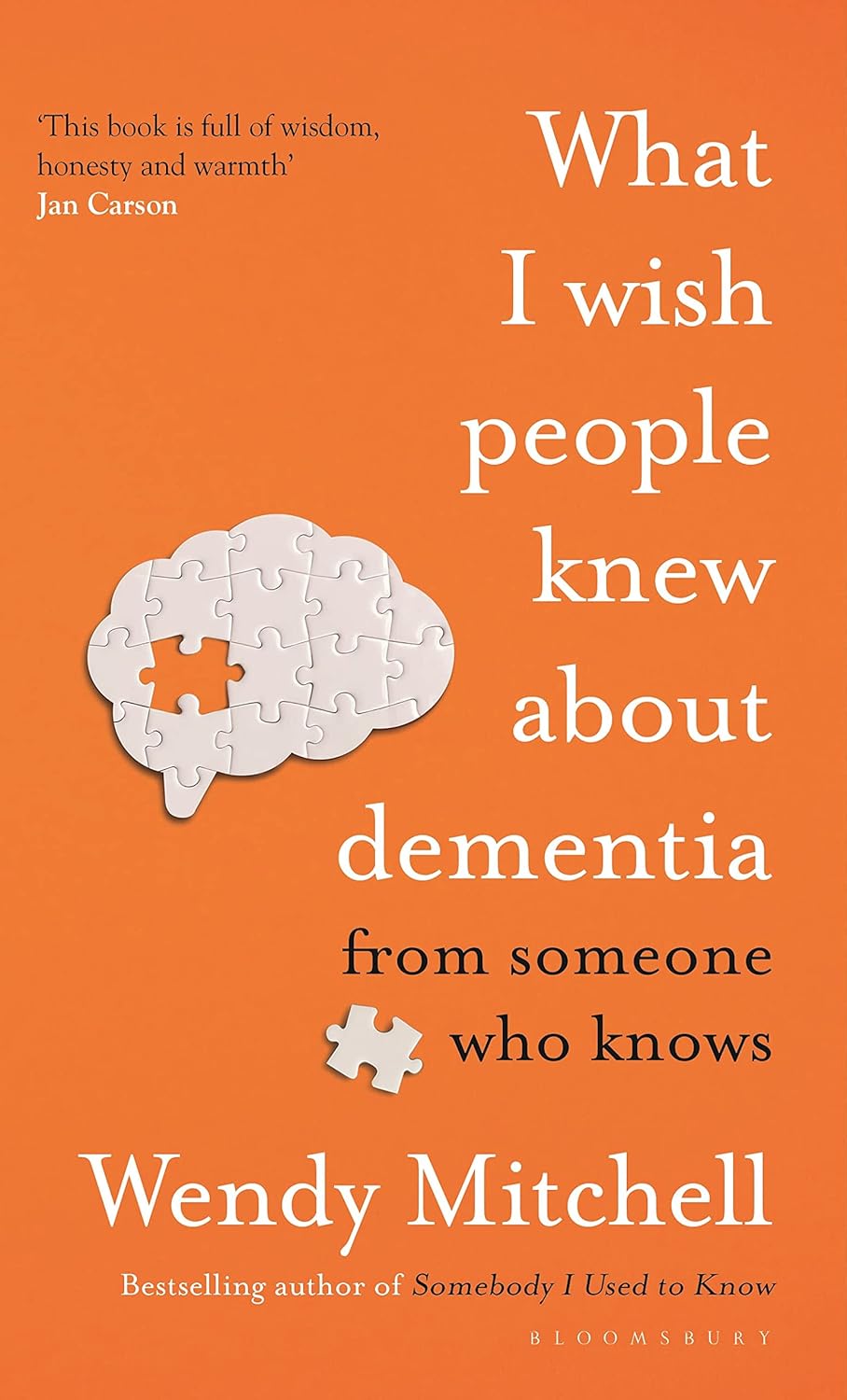About this deal
The main message I took from the book,’ says Janet, ‘was that the attitudes, language and communication from others (especially professionals) can be so crucial, and that so much could still be improved upon.’ Caroline says, ‘Wendy has strong opinions on many areas including relationships, social isolation, environment and living alone with dementia. If I listened to what everyone else says, I would never have jumped out of an aeroplane. I would never have done half the things that others say are not possible for people living with dementia.” It is said that only 7 per cent of our communication is verbal. Fifty-five per cent of it is body language and 38 per cent is tone of voice. I know that as I sat with my dying mother, there was no need for any words at all. The touch of my hand on hers in that moment said everything there was left to say. She just needed to know that I was close, and that she wouldn’t be alone when death finally came to claim her.
Wendy used to work as a manager for the NHS at a hospital in Leeds and reveals “I used to be renowned for having a brilliant memory but it started letting me down badly. I came out of my office and I forgot where I was. Despite spending 20 years working for the NHS, where she would train nurses on how to roster staff, Wendy Mitchell admits the word ‘dementia’ had never entered her vocabulary. That changed on 31 July 2014, the day Wendy was told she had early-onset Alzheimer’s, aged 58. Everyone is an individual, so when you meet one person with dementia, you’ve met only one person with dementia. Some things work for some people and don’t work for others. However, I always think that recording now, in whatever way is possible for you, is a legacy for your children and their children – and other generations. I find it a very comforting idea.” What impact do you hope the book has on others?
Reviews
In her local village, she is known as 'The Camera Lady' as she walks around photographing the countryside every day. She explores in detail the six key ways in which dementia has impacted her life: senses, relationships, emotions, environment, communication and attitude. She provides practical examples of what living with dementia looks like on a daily basis – from getting lost while out for a walk, to forgetting how to boil an egg – and is also generous enough to share some of the ingenious coping mechanisms she’s learned to employ. If I’m with my daughters, people will speak to them instead of me, but my daughters are very good at saying, ‘Well why don’t you ask mum?’ When people hear the word ‘dementia’ they forget there’s a beginning and automatically think of the end. There’s so much life still to be lived, albeit differently and with lots of support. I always tell people they should never dwell on what they can’t do; I can’t drive or cook or do numerous other things, but there are lots of other things I can do, so I concentrate on those.” How did the idea for writing a book come about? Here's how, with your support, Age UK is supporting older people through the cost of living crisis. When people hear that word 'dementia' they skip immediately to the end stages and they forget there's a beginning and a middle and so much life left to live [after a diagnosis]" Wendy tells Kim Hill.
I was never a very tactile person. Dementia changed that: suddenly I found myself wanting to hug everyone that I met, or at least the people who I knew by instinct that I liked. I see people as kind or not kind, and for those who show kindness, in return I wanted to hug them to show my gratitude. Their kindness means much more than they can imagine. I suddenly found myself hanging on to my daughters for longer and harder. Was it lost inhibitions that were to blame? A new neediness I hadn’t been brave enough to admit to? Or perhaps a hug represents an inner emotional reserve: maybe touch cuts through moments when words grow complicated or hard to find, instantly communicating that someone cares.”
Customer reviews
When people think of dementia, they immediately associate it with memory. Few people realise, for example, just how it changes our relationships with our senses, our emotions, our communication. Few people understand the importance of a good environment – both inside and out – after a dementia diagnosis, and the small changes that can make a big difference. Unless you tell them, or talk about it, people will never know the difference dementia makes to your relationships – and how to make them work better. And if you don’t know any of this at all, how can you be responsible for your attitude?”
Related:
 Great Deal
Great Deal 